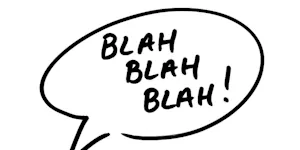What Makes This Word Tick
"Minatory" is a word that might make you think twice. It lurks in the shadows of language, conveying a sense of threat or menace. This isn't a word you'd use lightly at a dinner party, unless you're describing the ominous storm clouds rolling in.
If Minatory Were a Person…
Minatory would probably be that mysterious neighbor you rarely see, always dressed in dark colors, who somehow knows a bit too much about everyone on the block. Polite, but with an air of mystery and a lingering hint of danger.
How This Word Has Changed Over Time
"Minatory" hasn't strayed far from its roots. Since entering the English language in the 16th century, it has consistently maintained its sense of foreboding. It's like a classic film noir detective: unchanging and resolutely serving its purpose.
Old Sayings and Proverbs That Use Minatory
Proverbs typically avoid "minatory" because of its weighty connotations, but you might imagine someone warning, "Beware the minatory path that leads to no good." It fits snugly into the language of somber warnings.
Surprising Facts About Minatory
Here's a surprising tidbit: while it sounds intimidating, "minatory" shares etymological roots with "menace" and "amenable," both tracing back to the Latin "minari," meaning to threaten. Quite the linguistic journey from threat to adaptability!
Out and About With This Word
You might hear "minatory" in legal or literary contexts, describing everything from a menacing look to threatening remarks. It's not for casual conversations, but when precision is needed, it steps up to the plate.
Pop Culture Moments Where Minatory Was Used
While "minatory" might not often headline in pop culture, imagine it in a suspenseful crime drama where the detective describes the villain's presence as deeply minatory. It's a word that sets the scene like few others.
The Word in Literature
In literature, "minatory" lurks in the pages of gothic novels and mystery thrillers, where atmosphere and mood are paramount. Think Edgar Allan Poe's works or Daphne du Maurier's "Rebecca," where an undercurrent of threat is ever-present.
Moments in History with Minatory
The Cuban Missile Crisis could be the protagonist in a chapter titled "Minatory Tensions," perfectly embodying the word without ever having to use it. It captures the palpable sense of threat felt worldwide during those tense days.
This Word Around the World
While "minatory" is distinctly English, its essence is universal. Across the globe, every language has its own way to express foreboding—whether it's "menaçant" in French or "minaccioso" in Italian, the sentiment is shared.
Where Does It Come From?
"Minatory" stems from the Latin word "minatorius," based on "minari," which means to threaten. It crossed into Middle English and has lingered ever since, like a shadowy figure at the edge of language.
How People Misuse This Word
Sometimes, "minatory" is mistaken for "mandatory" due to similar sounds but vastly different meanings. It might lead to some interesting misunderstandings—threatening tasks are rarely mandatory!
Words It’s Often Confused With
Mandatory: Compulsory or required, unlike minatory’s threatening nature.
Military: Easily confused by sound, yet unrelated.
Monitory: Often mixed up in print, but relates more to warning or advising rather than outright threat.
Additional Synonyms and Antonyms
Synonyms for "minatory" include "threatening," "menacing," and "ominous." Its antonyms are "reassuring," "breezy," and "benign"—all words that could soothe rather than disturb.
Want to Try It Out in a Sentence?
"The old house on the hill had a minatory presence, casting long shadows that seemed to whisper promises of unease to anyone daring to approach."
















